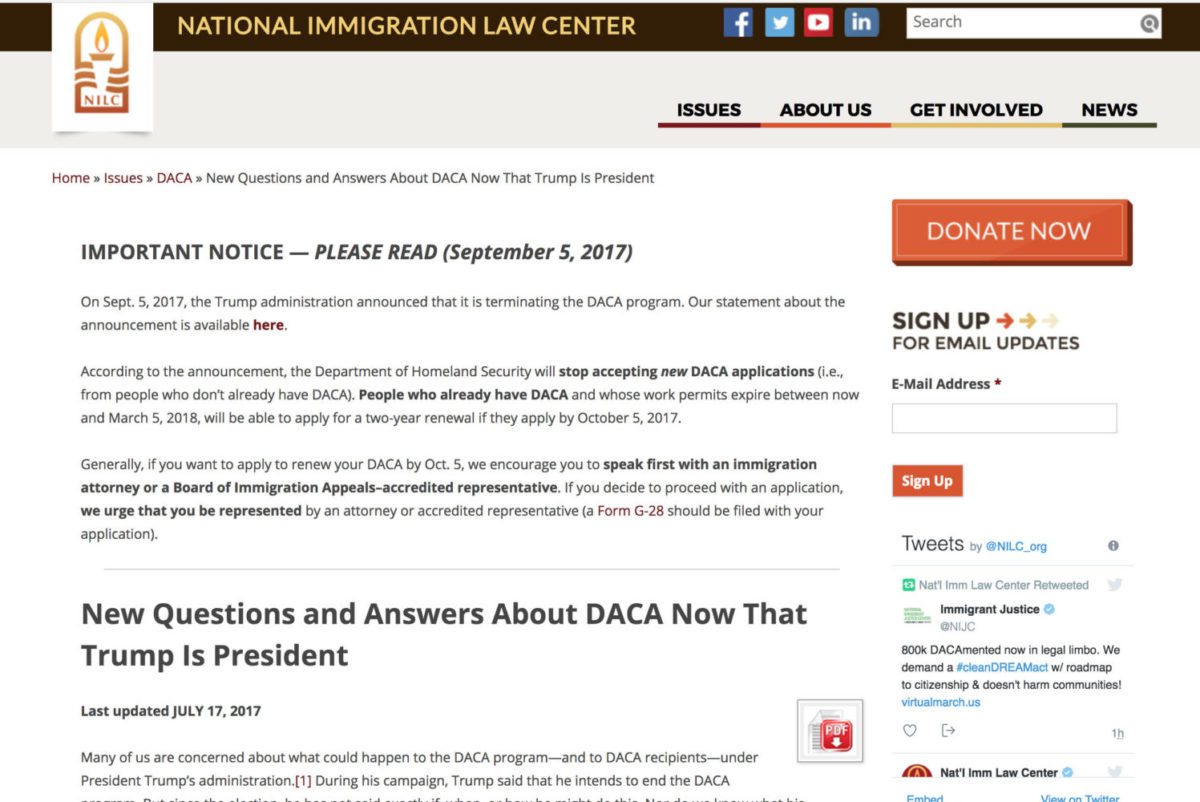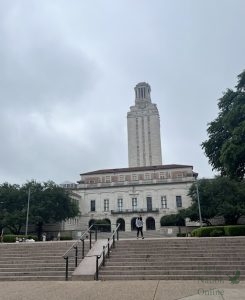President Trump announces end of DACA program
September 27, 2017
The Trump Administration announced the rescinding of the Deferred Action of Childhood Arrivals (DACA) on September 5, 2017.
According to the National Immigration Law Center, DACA has protected over 800,000 youth since its enactment by the Obama administration in 2012. The policy prevents the deportation of the children of undocumented immigrants and provides them with a work permit as long as they have a high school diploma, an equivalent, or are studying. They also must have entered the United States before their 16th birthday and cannot have been convicted of any felonies or misdemeanors, such as a DUI.
“[DACA] is a deferred action on people who arrived in the country illegally by virtue of not having proper paperwork, but they were children when they came,” Mr. Kear, an AP US History teacher, said. “As grown people they have no actual memory of having arrived in the United States or of the country where they were born and all of their memories are as Americans.”
President Trump has announced the end of DACA, but it hasn’t officially ended, as there are steps that can be taken by Congress to put a new protection plan for immigrants in place. There are also a lot of questions around what will happen to immigrants in special circumstances, such as those having families.
There will also be secondary and tertiary repercussions to the ending of DACA.
“There are some people who are old enough protected under DACA that now have children of their own or have married people who are American citizens,” Mr. Kear said. “And then of course it extends into friends, family, and employers, because many of these people have jobs. If they are removed from the country there are jobs that have to be filled from somewhere.”
Students also have opinions on the ending of DACA.
“I wasn’t expecting DACA to end,” Diana Sotelo, a sophomore, said. “I don’t think it’s ethical to take DACA away from immigrants and I don’t think they should have removed it. I think it’s a good policy because it helped immigrant youth and also gave them an opportunity to establish their lives here in the United States.”
This also raises the question of what is ethical and what is practical. Is what makes us American a piece of paper, or is it an attitude?
Mr. Kear labels this as the “struggle between the letter of the law and the spirit of the law. If you are an American, what does that even mean?”
Senior Adwaith George, brought up the same point.
“I think President Trump’s decision on shutting down the DACA program is not ethically correct because many immigrants were exposed to American values and brought up with American traditions and just taking it all away from them and deporting them is not ethical.”



























